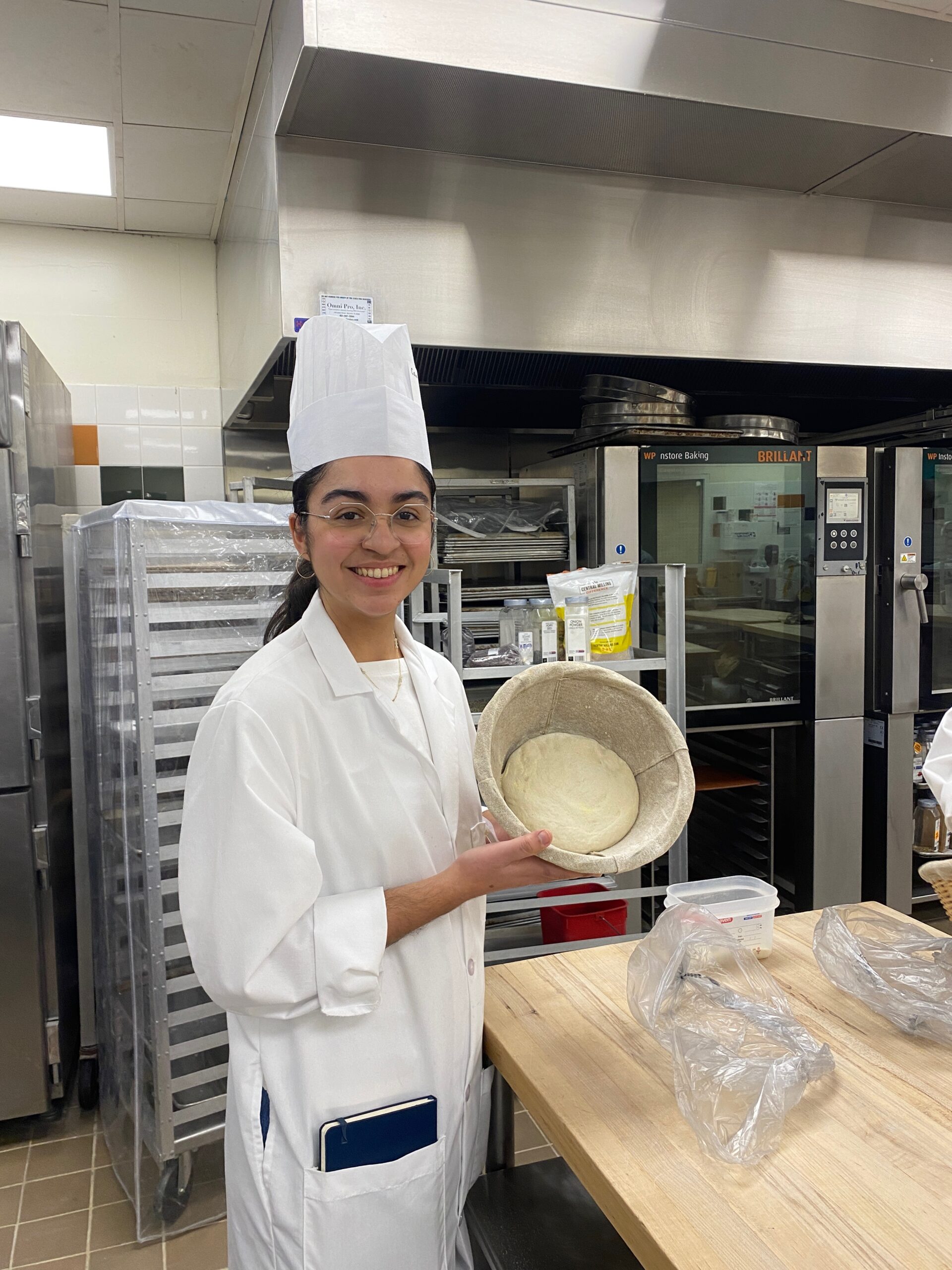Camila Sanchez-Gonzales, 2024
Spring Break at JWU: Student Experiences

Looking back at my experience at Johnson and Wales University Center for Food Innovation & Technology (JWU), I can firmly say that I have never been an institution quite like it. JWU is definitely unique in of itself, it’s a foreign space for those who are unfamiliar but a home to those who grew up loving all types of disciplines: culinary, nutrition, hospitality, design, sustainability, health, and wellness. From these disciplines I found that culinary and hospitality compose the mind and heart of the institution.
During my time at JWU I experienced about seven different courses: Therapeutic Cuisine class, Regenerative Foodways class, Cooking for Health and Wellness class, Plated desserts class, Contemporary Cooking, Wine Exploration class, and Ancient grains and Hearths breads class.
Each of these classes taught me not only how food connects us across geographical boundaries but also through our individual past experiences.
Engaging with fellow students and faculty members during these courses, I discovered the diverse backgrounds and motivations that led them to pursue their respective fields. Although many opportunities were introduced in the kitchen others were being at the table. I never realized how important one’s perspective shifts from being used to sitting down in a lecture to the lecture being seating down for meal. What a lovely experience is it not?
Well for the students at JWU this can be a daunting experience. From being behind the scenes(kitchen) to having to memorize each meal for each day of each week, the task can be an intimidating one. However, my experience at the table gave me an appreciation to the hard work it takes to run any business, but also more appreciation to how, where, and when my food is made.
Food has always been central to my life. Food is the one thing that connects us all, whether at JWU, Friedman School of Nutrition Science and Policy, or elsewhere. For my family and me, cooking and baking are not just activities, is our way of life and communication.
As a child, I shadowed my dad and grandfather in the kitchen, where I witnessed all the magic unfold behind the scenes. I closely observed their techniques, learning from both the perspective of a chef and a baker, each with their own set of strengths and weaknesses. Little did I know that this upbringing would serve as a drive to my experiences at JWU later on. Despite their differences, culinary and baking have both been lifelong passions of mine, both involving the power to create something from nothing.
Remaining behind the scenes proved to be invaluable during my week at JWU. From asking questions to learning new techniques like chopping, dicing, peeling, marinating, soaking, and mixing; assuming the role of a commis chef was a position that I embraced wholeheartedly.
Each new day at JWU came with new experiences, recipes, meals, techniques, questions, curiosities, and hard work. Coming into this new space, I am reminded that food always has a means to connect people.
Whether it is JWU, Friedman, or the Food and Nutrition and Innovation Institute (FNII) I encourage you all to not miss a seat at the table.
Course
NUTR 390: Introduction to AI-Based Applications for Nutrition and Health Research (AIRNH) offers an overview of AI-based applications beneficial for health and nutrition research. It emphasizes the use of knowledge graphs, conceptual maps, and causal diagrams to enhance understanding and practical skills. The course also focuses on ethical considerations in using AI-powered tools, addressing the impacts of structural missingness on algorithmic bias, and exploring data representation and model transparency within the context of nutrition science and policy.
